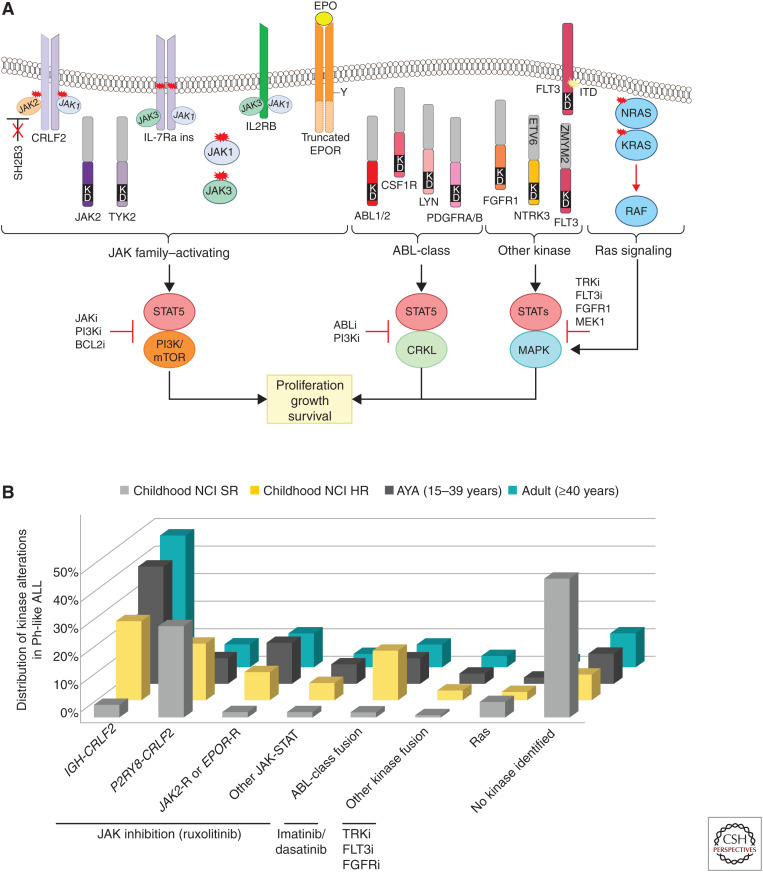Figure 2.
(A) Kinase alterations and signaling pathways dysregulated in Philadelphia chromosome-like (Ph-like) ALL. The majority of kinase and cytokine receptor alterations converge on two pathways that activate JAK-family member signaling or ABL signaling. Alterations that activate JAK-STAT signaling can be targeted with JAK and PI3K inhibitors. ABL-class alterations can be targeted with ABL-inhibitors such as dasatinib. Other kinase alterations and those that activate Ras signaling can be targeted with specific inhibitors including those that inactivate TRK, FLT3, FGFR1, and MEK for the MAPK pathway. (B) Distribution of kinase subtypes in Ph-like ALL within each age group (Roberts et al. 2014a, 2017a, 2018; Reshmi et al. 2017). Combined prevalence of Ph-like ALL subtypes in childhood National Cancer Institute (NCI) standard-risk (SR; age 1–9.99 yr and WBC < 50,000/µL), NCI high-risk (HR; age 10–15 yr or WBC ≥ 50,000/µL), adolescent and young adults (1639 yr), and adults (≥40 yr). Genomic subtypes include IGH-CRLF2, P2RY8-CRLF2, and ABL-class fusions (ABL1, ABL2, CSF1R, LYN, PDGFRA, and PDGFRB); JAK2 and EPOR rearrangements and other mutations in JAK–STAT signaling (JAK1/3, IL7R, SH2B3, TYK2, and IL2RB); and other kinase alterations (FLT3, FGFR1, NTRK3), Ras mutations (KRAS, NRAS, NF1, PTPN11, BRAF, and CBL), and unknown alterations.

